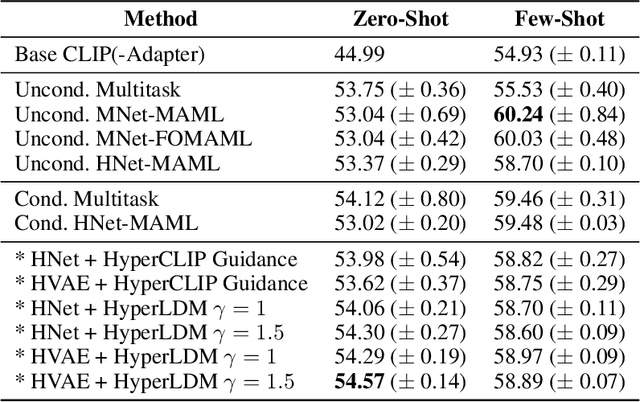Meta-Learning via Classifier(-free) Guidance
Paper and Code
Oct 17, 2022



State-of-the-art meta-learning techniques do not optimize for zero-shot adaptation to unseen tasks, a setting in which humans excel. On the contrary, meta-learning algorithms learn hyperparameters and weight initializations that explicitly optimize for few-shot learning performance. In this work, we take inspiration from recent advances in generative modeling and language-conditioned image synthesis to propose meta-learning techniques that use natural language guidance to achieve higher zero-shot performance compared to the state-of-the-art. We do so by recasting the meta-learning problem as a multi-modal generative modeling problem: given a task, we consider its adapted neural network weights and its natural language description as equivalent multi-modal task representations. We first train an unconditional generative hypernetwork model to produce neural network weights; then we train a second "guidance" model that, given a natural language task description, traverses the hypernetwork latent space to find high-performance task-adapted weights in a zero-shot manner. We explore two alternative approaches for latent space guidance: "HyperCLIP"-based classifier guidance and a conditional Hypernetwork Latent Diffusion Model ("HyperLDM"), which we show to benefit from the classifier-free guidance technique common in image generation. Finally, we demonstrate that our approaches outperform existing meta-learning methods with zero-shot learning experiments on our Meta-VQA dataset, which we specifically constructed to reflect the multi-modal meta-learning setting.
 Add to Chrome
Add to Chrome Add to Firefox
Add to Firefox Add to Edge
Add to Edge